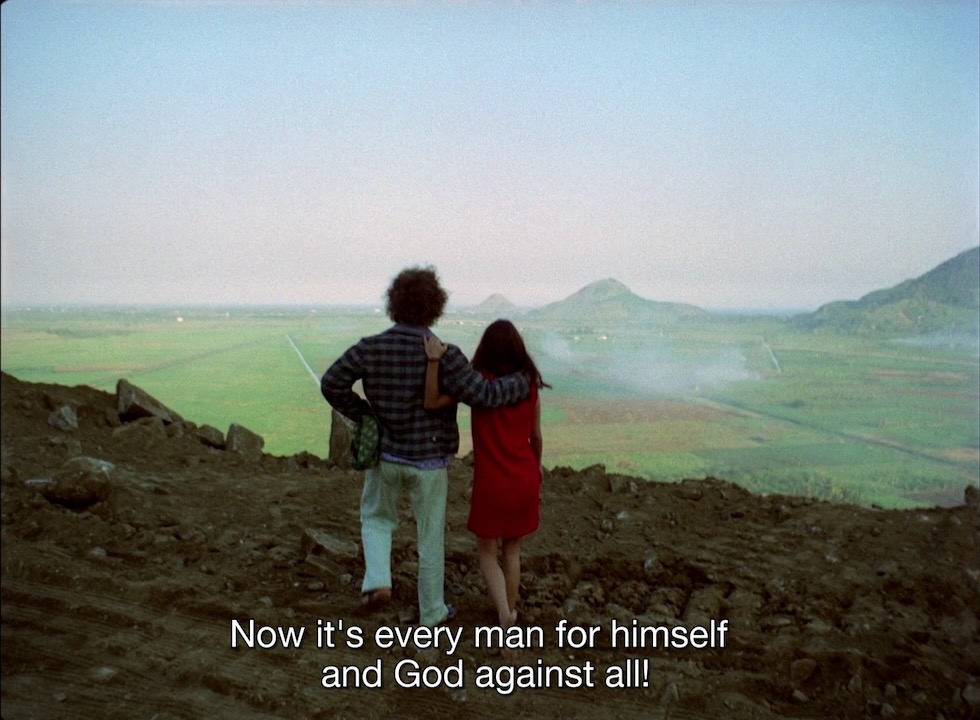Still on the “Left and Revolutionary Cinema” chapter of the Vogel book, same as Que Hacer (considered a triple-feature with Mandabi). Loosely based on a major 1928 novel (narrated by a parrot), this is colorful and insane from the opening minute (when our hero is born fully-grown). After “growing up” in the jungle, his mother dies and he turns white and moves to Rio with his brothers. Ill-prepared for the city, Mac gives all his money to a street magician in exchange for a duck that shits money, gets tricked by another guy into smashing his nuts with a brick, scenes shot in public with passers-by grinning at the camera. He finally gets a sense of purpose, aiming to recover an amulet belonging to his late wife, now in possession of a man-eating giant. The adventure over, he returns to his crumbling home, alienates his brothers, tells his story to the parrot, then gets eaten by a mermaid.
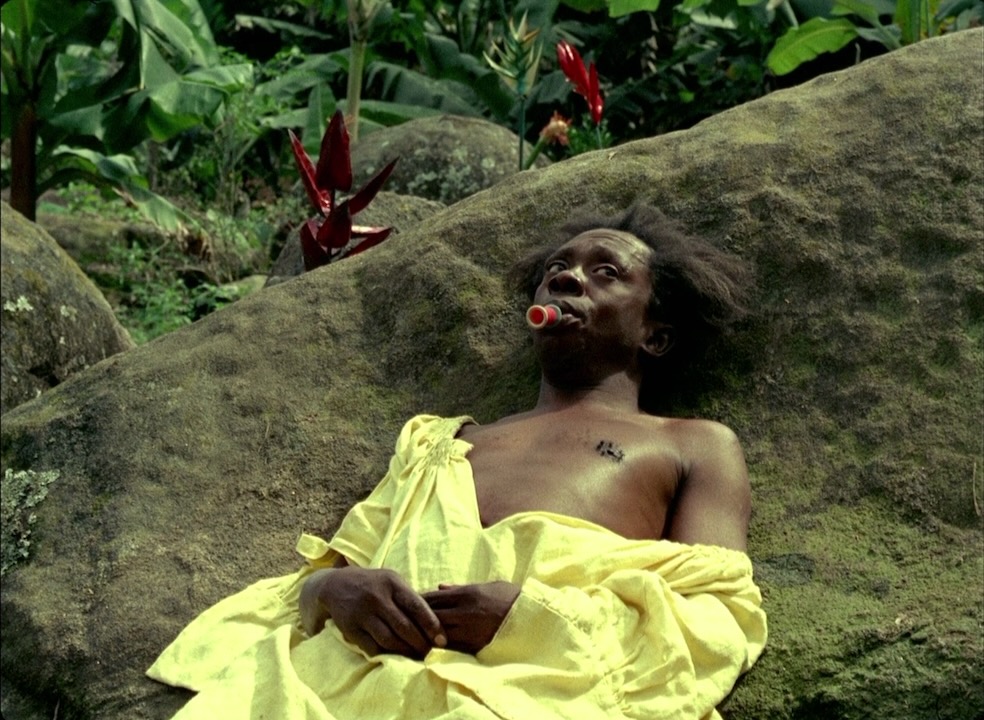
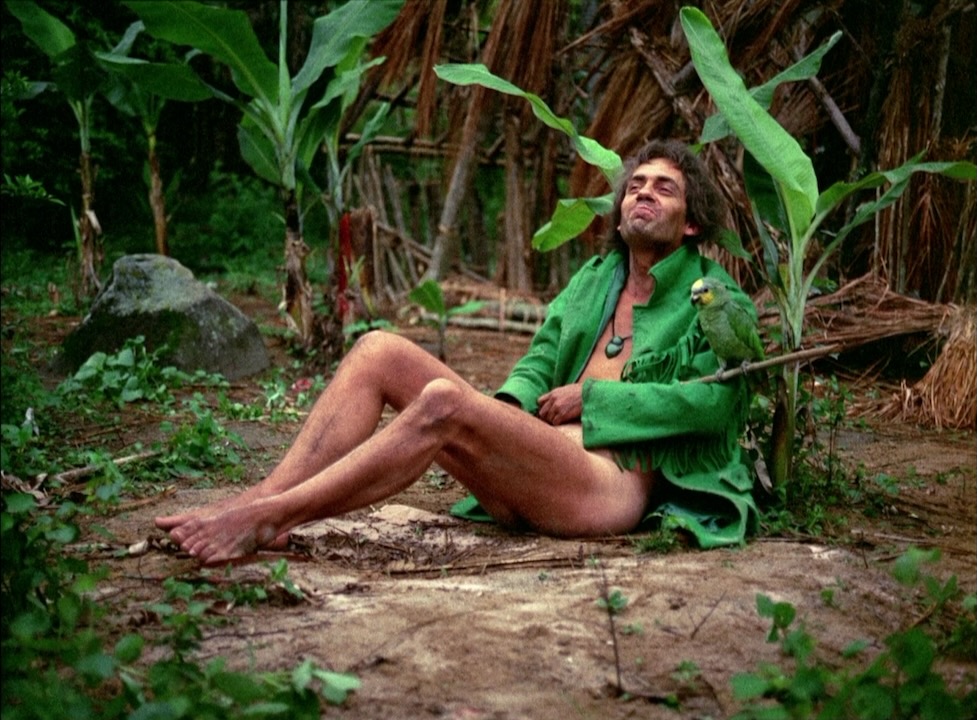
Reed Johnson: “Brazilian audiences watching the movie could be counted on to catch its risque jokes and allusions to race relations, Brazil’s traumatic colonial history, the military dictatorship and other taboo topics.” Gustavo in Senses gives good context on Brazilian cinema and culture. “Ci, the forest queen who is the hero’s most important romantic conquest in the book, is cast in the film as an urban guerrilla, a revolutionary woman who also represents the counterculture and cosmopolitan consumerism.”
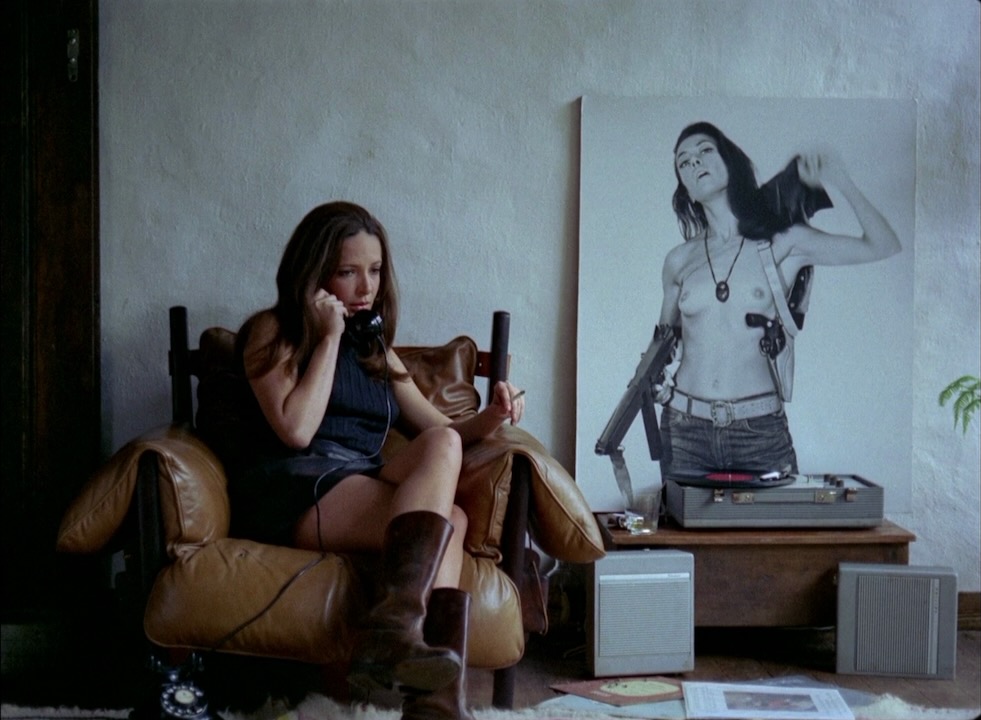
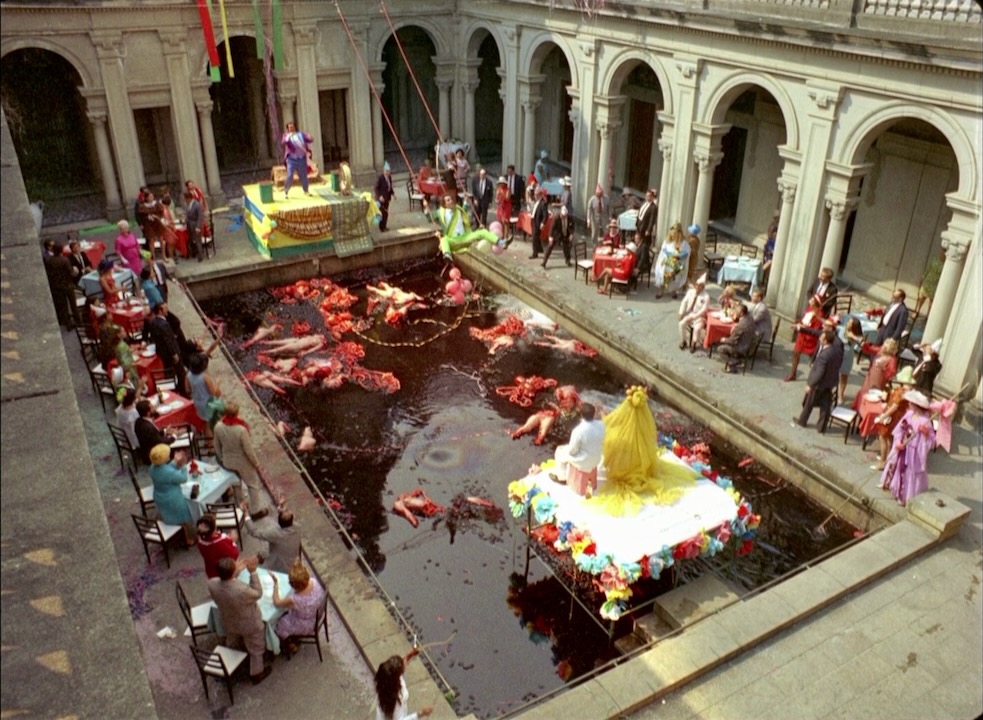
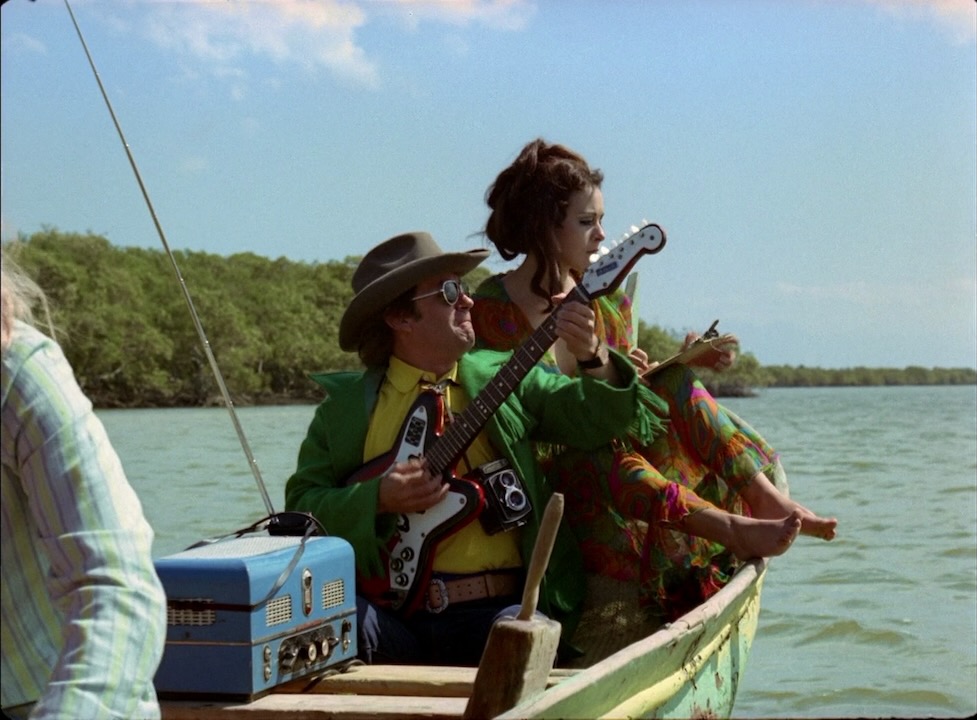
Black Mac starred in Rio Zona Norte, White Mac in Ilha Das Flores, brother Jigue was in Kiss of the Spider Woman, brother Maanape in Killed the Family and Went to the Movies, and the Giant starred in Entranced Earth. That covers all the Brazilian directors I’ve heard of (plus Kleber).
White Mac and his brothers:
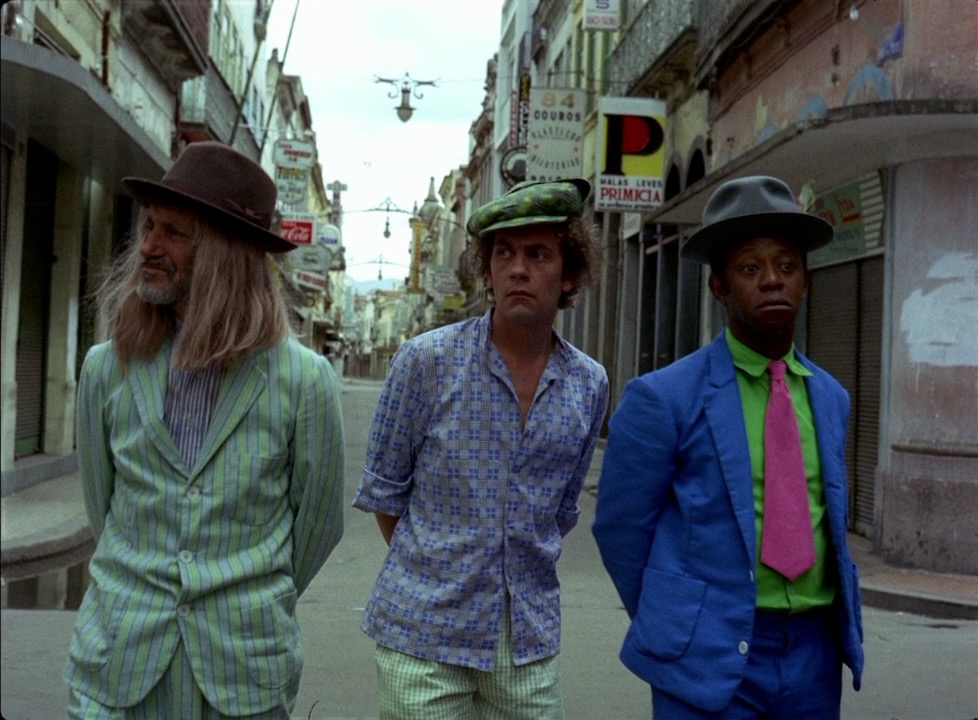
Black Mac’s mom is played by White Mac, whose son is played by Black Mac:
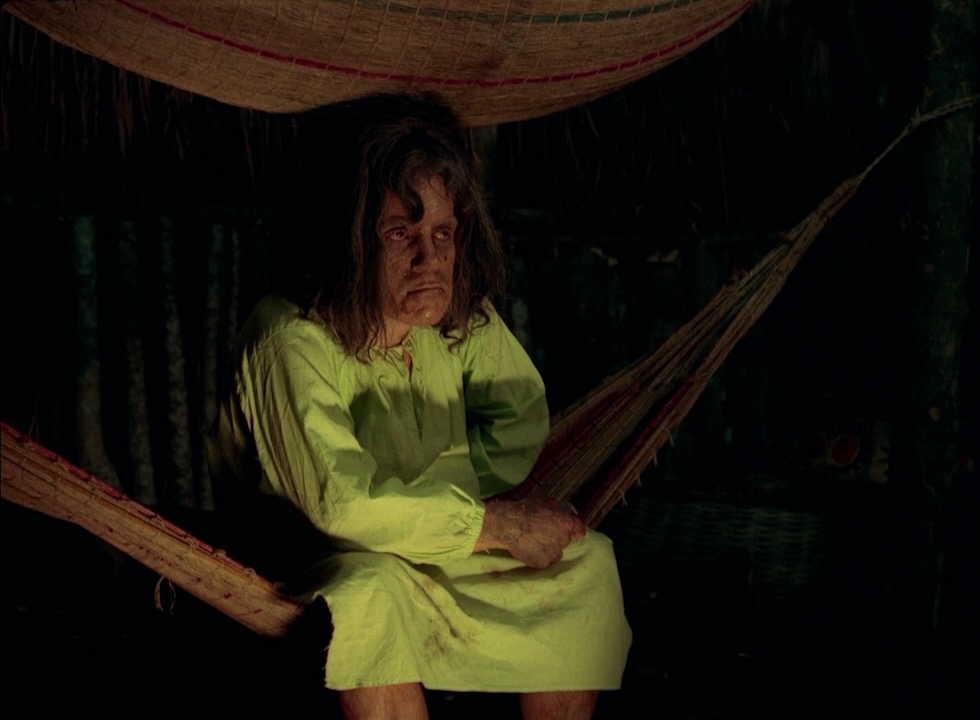
Paging Werner Herzog:
